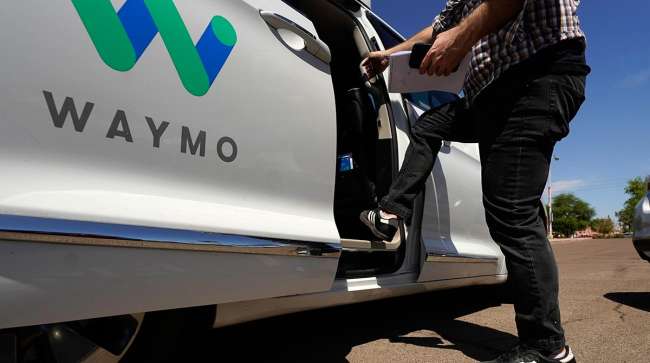Overview of Waymo’s Robotaxi Expansion
Waymo’s foray into Atlanta marks a significant development in the realm of autonomous transportation. Starting from June 24, residents of this vibrant city can experience the convenience of driverless rides through a collaboration with a prominent ride-hailing service, which initially took root in Austin, Texas.
A New Contender in Driverless Transportation
Waymo’s entry into Atlanta comes hot on the heels of another electric automaker launching its robotaxi service in Austin, a bold step taken over five years after promising swift advancements in autonomous technology. Unlike its counterpart, Waymo’s vehicles will operate fully driverless, eliminating the need for a safety driver in the passenger seat—a testament to their reliance on advanced technology.
Currently, Waymo has rolled out approximately 100 driverless vehicles in Austin, a rapid deployment since the inception of their partnership earlier this year. By expanding into Atlanta, Waymo stays aligned with a strategy laid out the previous September, steadily advancing toward their goals.
Operating Mechanics in Atlanta
Similar to the setup in Austin, passengers in Atlanta can request a ride through the app. Uber offers an option to choose a traditional human-driven ride should riders feel hesitant about hopping into a driverless vehicle. Initially, these robotaxis will traverse a designated 65-square-mile area with potential for future expansion as the service grows.
Waymo’s Service Footprint
Waymo’s self-driven technology is already operational in several other major markets, including Phoenix, Los Angeles, and an expanding section of the San Francisco Bay area. Through this partnership, they facilitate over 250,000 paid rides weekly, establishing themselves as frontrunners in the burgeoning robotaxi sector.
Emerging Competition
However, the road ahead is bustling with competition. Another electric vehicle company is gearing up to enhance its robotaxi operations, pushing the envelope on rapid service expansion. Meanwhile, tech giants like Amazon are also preparing to introduce their own unique driverless solutions in Las Vegas, with aspirations to extend into Atlanta down the line, although no timeline has been released for this rollout.
Uber’s Shift Amid Legal Challenges
Once poised to develop their own autonomous vehicles, Uber switched gears following a high-stakes legal tussle with Waymo concerning allegations of stolen technology. After reaching a settlement involving substantial financial compensation, Uber restructured its strategy, pivoting to partnerships for robotaxi services.
“By integrating Waymo’s cutting-edge technology into the Uber platform, we’re continuing to make transportation more convenient, sustainable, and reliable,” noted a top company official, emphasizing the synergy of the collaboration.
Future Trends in Autonomous Transportation and Logistics
Uber claims to be on track for more than 1.5 million driverless rides annually, encompassing both passenger transportation and food deliveries worldwide. As these advancements unfold, they could reshape the la logistique landscape significantly by enhancing efficiency and reducing costs.
As flexibility becomes a cornerstone in transportation, consumers could witness lower prices and improved access to various services through companies like GetTransport.com, which provides global cargo solutions for businesses and individuals alike.
What this Means for Users and Logistics
The advent of these self-driving vehicles prompts interesting discussions about how the logistics sector might adjust. As autonomous technology proliferates, it could signal a decrease in delivery costs, ultimately benefiting consumers. With drivers no longer required, logistics can become leaner and more efficient, making transportation services more accessible without sacrificing reliability.
Résumé
Waymo’s expansion into Atlanta represents a transformative shift in the way urban mobility is perceived and utilized. This partnership alongside Uber not only showcases technological advancements but also informs future trends in the logistics sector. Even as personal experiences remain irreplaceable, the insights garnered from reviews and collaborative initiatives cannot be underestimated.
Explore how getting your cargo transported can be a breeze with GetTransport.com. The platform excels at providing reliable, affordable, and flexible solutions for various transportation needs, such as office relocations or moving bulky items. By focusing on convenience and extensive options, GetTransport.com empowers users to make informed decisions while avoiding unnecessary costs.
For your next transportation venture, foster a seamless experience by leveraging the capabilities of GetTransport.com. Book now to seize the best offers and ensure your logistics needs are met efficiently—visit GetTransport.com.

 Les taxis autonomes de Waymo commencent à fonctionner à Atlanta">
Les taxis autonomes de Waymo commencent à fonctionner à Atlanta">